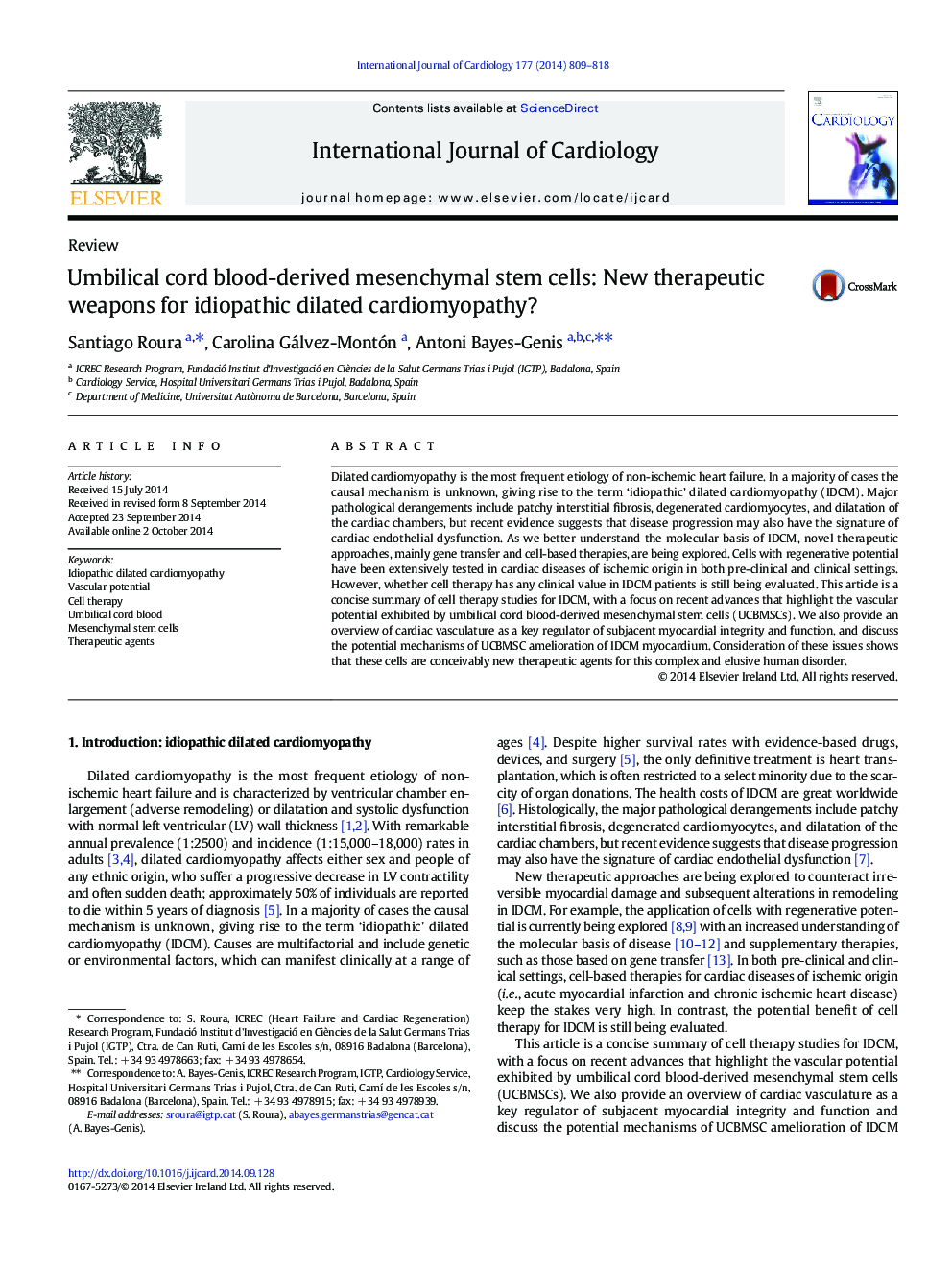| Article ID | Journal | Published Year | Pages | File Type |
|---|---|---|---|---|
| 5969511 | International Journal of Cardiology | 2014 | 10 Pages |
â¢Dilated cardiomyopathy is the most frequent etiology of non-ischemic heart failure.â¢Major pathological derangements include marked cardiac endothelial alterations.â¢Whether cell therapy has clinical value in these patients is still being evaluated.â¢Mesenchymal stem cells from umbilical cord blood contribute to blood vessel growth.â¢These cells are conceivably new therapeutic agents for this elusive disease.
Dilated cardiomyopathy is the most frequent etiology of non-ischemic heart failure. In a majority of cases the causal mechanism is unknown, giving rise to the term 'idiopathic' dilated cardiomyopathy (IDCM). Major pathological derangements include patchy interstitial fibrosis, degenerated cardiomyocytes, and dilatation of the cardiac chambers, but recent evidence suggests that disease progression may also have the signature of cardiac endothelial dysfunction. As we better understand the molecular basis of IDCM, novel therapeutic approaches, mainly gene transfer and cell-based therapies, are being explored. Cells with regenerative potential have been extensively tested in cardiac diseases of ischemic origin in both pre-clinical and clinical settings. However, whether cell therapy has any clinical value in IDCM patients is still being evaluated. This article is a concise summary of cell therapy studies for IDCM, with a focus on recent advances that highlight the vascular potential exhibited by umbilical cord blood-derived mesenchymal stem cells (UCBMSCs). We also provide an overview of cardiac vasculature as a key regulator of subjacent myocardial integrity and function, and discuss the potential mechanisms of UCBMSC amelioration of IDCM myocardium. Consideration of these issues shows that these cells are conceivably new therapeutic agents for this complex and elusive human disorder.
